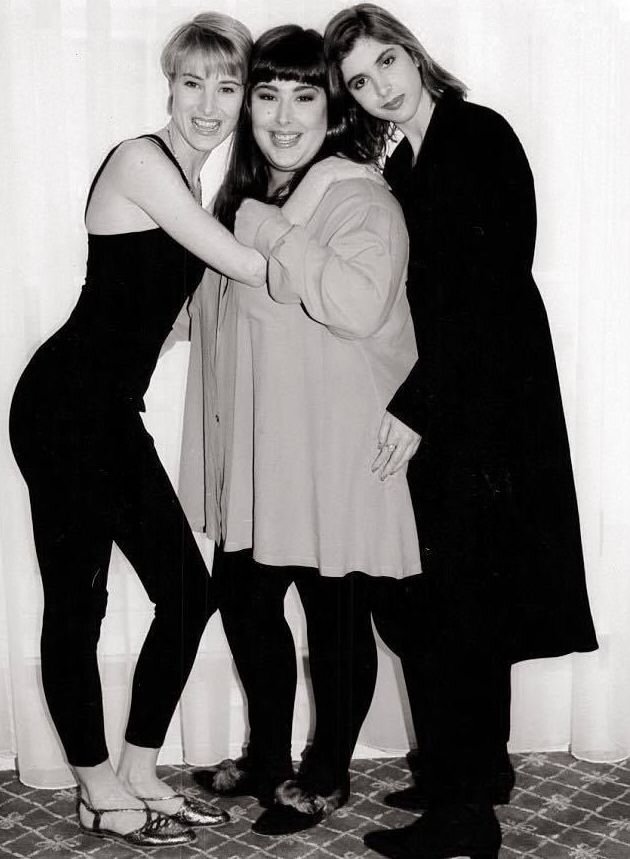Listen to this episode on Apple Podcasts.
Cass Elliot didn’t die eating a ham sandwich. But the lasting power of that urban legend speaks to a far darker story. Elliot possessed one of the most influential voices of the 1960s. However, while her big break with The Mamas and The Papas and meteoric career changed the LA music scene forever, it also entrapped Elliot in a cycle of fat-shaming, sending her spiraling into catastrophic weight-loss regimens. In this episode, we’ll talk about the music industry’s complicated relationship with weight, how crash dieting likely led to the untimely death of this music legend, and the true legacy of Elliot in pop culture.
This episode was written and performed by Lexi Pandell, a writer from Oakland, California. Her work has been published by The Atlantic, The New York Times, WIRED, The New Republic, Condé Nast Traveler, GQ, Playboy, and many others.
SHOW NOTES:
Sources specific to this episode:
Dream a Little Dream of Me by Eddie Fiegel
Go Where You Wanna Go: The Oral History of The Mamas and The Papas by Matthew Greenwald
American Legends: Mama Cass by Charles Rivers Editors
Reducing Bodies: Mass Culture and the Female Figure in Postwar America by Elizabeth Matelski
California Dreamin’ by Michelle Phillips
The Mamas & the Papas: Behind the Music from VH1, 1998
E! True Hollywood Story: Mama Cass Elliot, 1996
“Mama Cass: A Myth, Larger Than Life,” July 31, 1992, Entertainment Weekly
“California Dreamgirl,” December 2007, Vanity Fair
“Sink Along with Mama Cass,” June 1, 1969, Esquire
“What a Way to Lose 110 Pounds!” March 1969, The Ladies Home Journal
“Cass Elliot, Pop Singer, Dies; Star of the Mamas and Papas,” July 30, 1974, The New York Times
“How Karen Carpenter's Death Changed the Way We Talk About Anorexia,” May 23, 2016, Time
“Wilson Phillips’s California Dream,” May 17, 1990, Rolling Stone
“Carnie Wilson Says She Was Weighed and Fat-Shamed by Howard Stern: 'I Was Devastated',” November 8, 2017, People
Excerpts from the following television shows and films were used throughout the episode:
The Mamas & the Papas: Behind the Music from VH1, 1998
Austin Powers: International Man of Mystery, 1997
Man of the Year, 2006
The Mike Douglas Show, 1970
E! True Hollywood Story: Mama Cass Elliot, 1996
The Dinah Shore Show, 1972
Different - Cass Elliot featured in Pufnstuf, 1970
The Carol Burnett Show, Season 4, Episode 8, 1970
The Carol Burnett Show, Season 5, Episode 4, 1971
The Red Skelton Show, 1971
The Tonight Show, 1974
The Talk, November 8, 2017
Carnie Wilson: Unstapled, 2010
Music:
The music used in this episode, with the exception of the intro, was sourced from royalty-free music libraries and licensed music collections. The intro includes a clip from the film Casablanca.
Excerpts from the following songs were used throughout the episode:
California Dreamin’ - The Mamas and The Papas
Creeque Alley - The Mamas and The Papas
Home Fires - Preservation Hall, Jenson Navarro
Summer Of Love - Christophe Marie Alai Deschamps , Brisa Roché
Picking Daisies - Dominique Gabriel Joseph Depret
Sometime - Rebecca Ruth Hall
Caribbean Fun - Gerhard Narholz
Nice To Meet You - Silvain Vanot
The Face - Julien Guillaume Yves Bonneau, David Alphonse Pierre Krutten, James Sheppard
Water Rising - Gareth David Dickson
One Emotion - Vasco, Jeremy Noel William Abbott
Snowmen - Kai Engel
Credits:
Make Me Over is a special presentation of You Must Remember This. It was created and directed by Karina Longworth, who also edited the scripts.
This episode was written and performed by Lexi Pandell.
Research and production assistant: Lindsey D. Schoenholtz.
Social media assistant: Brendan Whalen.
Producer: Tomeka Weatherspoon.
Editor: Jared O'Connell.
Audio engineers: Jared O'Connell, Andrea Kristins and Brendan Burns.
Supervising Producer: Josephine Martorana.
Executive Producer: Chris Bannon.
Logo design: Teddy Blanks and Aaron Nestor.









